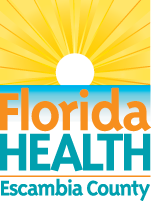It's a New Day in Public Health.
The Florida Department of Health works to protect, promote, and improve the health of all people in Florida through integrated state, county, and community efforts.
INCREASE AWARENESS, OBSERVE WORLD AIDS DAY ON DECEMBER 1ST
November 30, 2015
Pensacola, Fla. – Since 1988, World AIDS Day has become one of the most recognized international health days and is a key opportunity to raise awareness, commemorate those who have passed on, and celebrate victories—such as increased access to treatment and prevention services like Pre-Exposure Prophylaxis (PrEP). To learn more about World AIDS Day, visit www.WorldAIDSCampaign.org.
Why is AIDS awareness so important? The Centers for Disease Control and Prevention (CDC) estimates 1.2 million people in the United States are living with HIV infection. Almost one in eight (12.8%) of those people are unaware of their infection. HIV infection can affect anyone and does not discriminate on basis of age, race, gender, or sexual orientation. The good news is that HIV treatment works, which is why it is so important to get tested and know your status.
HIV is preventable, but despite this fact, the HIV/AIDS epidemic continues to grow at an alarming rate. Escambia County, FL ranks 15th in HIV and 16th in AIDS cases out of 67 Florida counties (as of 10/30/2015) with a total of 1,312 people living with HIV/AIDS in Escambia alone. The number of reported cases in Escambia County is on the rise with an 18% increase in HIV and a 10% increase in AIDS cases compared to the same period (January-September) last year.
What can you do to prevent HIV and AIDS?
- Know your HIV status! The CDC recommends everyone between the ages of 15 and 65 get tested for HIV at least once. If you are at increased risk for HIV, you should be tested at least once a year.
- If you have HIV, you can get medical care, treatment, and supportive services to help you stay healthy and reduce your ability to transmit the virus to others. This is called Treatment as Prevention (TASP).
- If you are pregnant and have HIV, treatments are available to greatly reduce the chance that your baby will have HIV.
- Limit your number of sex partners. The fewer partners you have, the less likely you are to encounter someone who is infected with HIV or another sexually transmitted disease (STD).
- Practice correct and consistent condom use. Latex condoms are highly effective at preventing transmission of HIV and some other sexually transmitted diseases. “Natural” or lambskin condoms do not provide sufficient protection against HIV infection.
- Get tested and treated for STDs and insist that your partners do too.
- Do not inject drugs. If you inject drugs, you should get counseling and treatment to stop or reduce your drug use. If you cannot stop injecting drugs, use clean needles and supplies when injecting.
- Obtain medical treatment immediately if you think you have been exposed to HIV. Sometimes, medications can prevent infection if started quickly (this is called HIV post-exposure prophylaxis or PEP).
- Participate in risk-reduction programs. Programs exist to help people make healthy decisions, such as negotiating condom use or discussing HIV status.
The Florida Department of Health in Escambia offers HIV testing in their STD clinic and also provides assistance with HIV medications. There are several community HIV test sites that offer free rapid HIV testing with preliminary test results in as little as one minute. For more information about HIV-related services in Escambia, please call 850-595-6345 or visit www.EscambiaHealth.com. Individuals may also request HIV testing through their physician.
For Media Inquiries
@HealthyEscambia
@HealthyFla





Connect with DOH